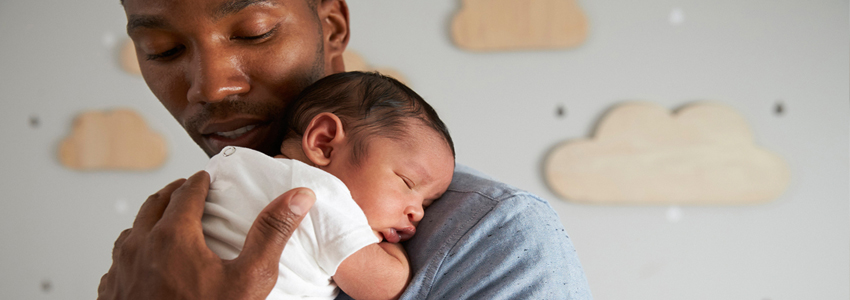
Frequently asked questions: Newborns
Having questions is a perfectly normal part of welcoming a new baby into the world. Below are a few of the most commonly asked questions new parents may have. In addition to this resource, we encourage you to discuss any questions you may have with your pediatrician.
when should i obtain insurance for my newborn?
Most insurance companies require new parents to obtain coverage within a certain number of days from birth. If both the mother and father have coverage, you will need to determine which plan the newborn will be registered for so planning in advance is important. If you are uninsured, we can connect you with the Maury Regional financial counselor to assist or you can reach out directly:
Patient Services Department
Maury Regional Medical Center
1224 Trotwood Avenue
Columbia, TN 38401
Monday-Friday
8 AM – 4:30 PM
931.381.1111, option 4
when will i receive my baby's birth certificate?
New parents will receive an unofficial copy of the birth certificate prior to leaving the hospital. The official birth certificate should be delivered to you by the U.S. postal service following discharge. For more information, visit the Tennessee Department of Health website.
Is my baby crying too much?
Crying generally increases over the first six to eight months before tapering off. (You can breathe a sigh of relief!) Crying most often means your baby is hungry or in need of a diaper change, but sometimes babies cry for no reason.
If your baby continues to cry after a meal and a diaper change, try swaddling, using a pacifier, rocking, cuddling or using white noise. Never shake your baby. Call your pediatrician if your baby still does not calm.
How often should my baby eat?
Expect your newborn to feed up to 12 times per day (or about every two to three hours) without a particular schedule. Spitting up small amounts is harmless as long as your baby is gaining weight and not in pain.
If you are able to breastfeed, breast milk is the best food for babies. (Read about our lactation services here.) But whether your baby is breastfeeding or drinking infant formula, you should wait until they are at least 6 months old before adding solid foods to their diet.
What's the best way to burp my newborn?
You can burp your baby before, during and after feeding by placing the baby on your shoulder so the baby has his or her stomach on your chest. You should then lightly pat his or her back.
Alternatively, you can sit the baby in your lap and place your hands supporting the head and chest while lightly patting the back.
When does my newborn need vaccines?
All babies should get their first hepatitis B vaccine before leaving the hospital.
When your baby is 2 months old, he or she should get his or her first set of vaccines against illnesses, such as diphtheria, tetanus and pertussis; pneumonia; pneumococcal disease; polio; rotavirus; and the second dose of the hepatitis B vaccine, according to the Centers for Disease Control immunization schedule.
What should my baby be doing?
All babies develop at their own rate. In the first few days, though, you might notice your baby:
- Raising their head slightly when on their stomach
- Moving their arms and legs together
- Holding your finger automatically
- Startling easily
- Seeing objects best when eight to 10 inches away
- Following slow moving objects with their eyes
- Calming when swaddled and rocked
What is normal sleeping?
If your baby is growing well, it’s fine to let him or her sleep or wake naturally. Generally, your baby will periodically sleep 16 to 18 hours per day for up to a few hours at a time.
How often should I bathe my baby?
You should give your baby a sponge bath with mild soap until the umbilical cord falls off. Afterward, you may bathe your baby in a small tub. Note, however, that there is no need to bathe daily during the newborn period as bathing too often can dry out your baby’s skin.
What's the scoop on baby poop?
Your newborn’s stool will be changing from tar-like black stools shortly after birth to greenish and then yellow and seedy stools. In the first few days, the stool frequency and color should help you know that the baby is feeding sufficiently.
Babies should have at least three to six stools in 24 hours, but some babies can have up to 12 stools per day. Babies often make dramatic facial expressions, pas gas, strain and draw up their legs when passing stools. So long as the stools are soft, this is not constipation or a cause for concern.
Can I take my newborn outside?
Parents are encouraged to take their babies for walks outside to get fresh air. However, make sure your baby is appropriately dressed. A good rule of thumb is to dress your baby in one more layer than you would wear — in both warm and cold weather.
Babies younger than 6 months should not wear sunscreen, so it is best to avoid peak sunlight hours. For the first month, it is also advised that newborns should not be taken into public places.
When is it an emergency?
The first month of your newborn’s life is critical, so always feel comfortable calling your pediatrician if you have a question.
You should call your pediatrician or take your baby to the emergency room if your baby:
- Has a rectal temperature of 100.4 degrees or higher
- Is crying excessively or is inconsolable
- Has difficulty or troubled breathing
- Is lethargic and is feeling poorly
- Is vomiting forcefully and repeatedly
- Is getting more yellow